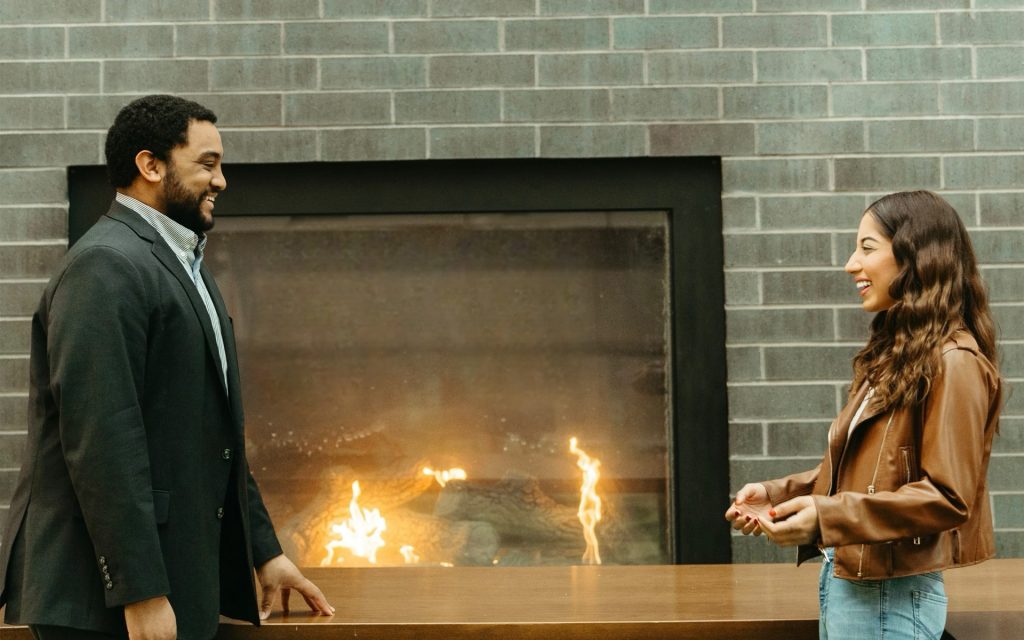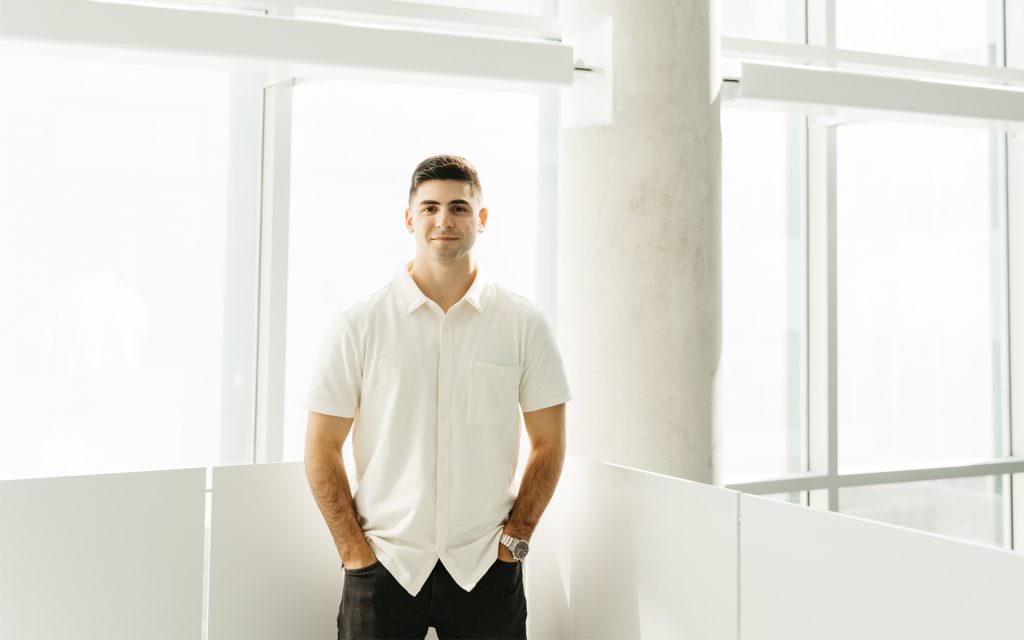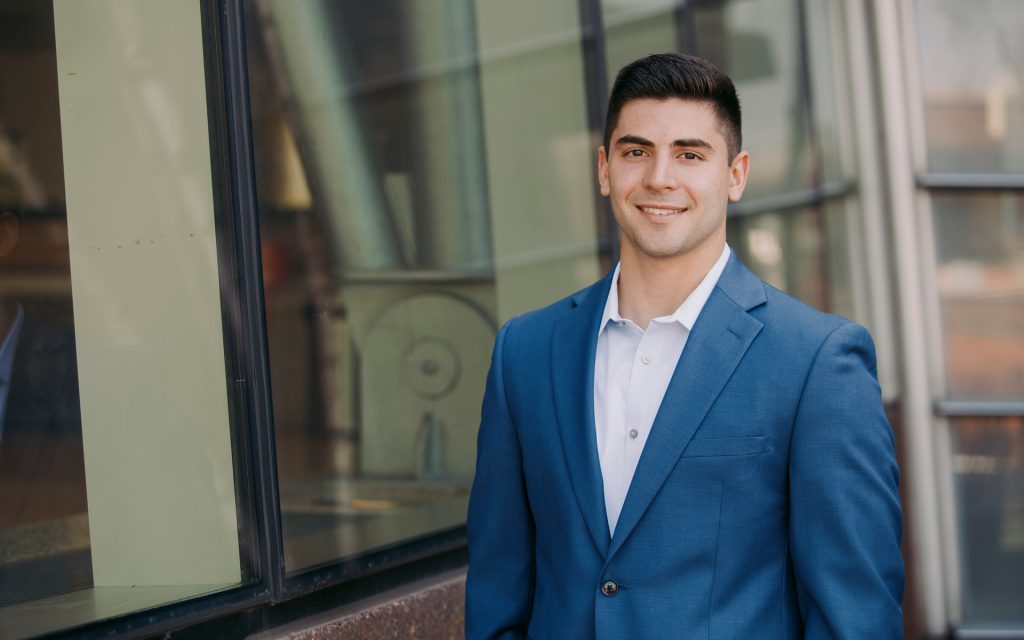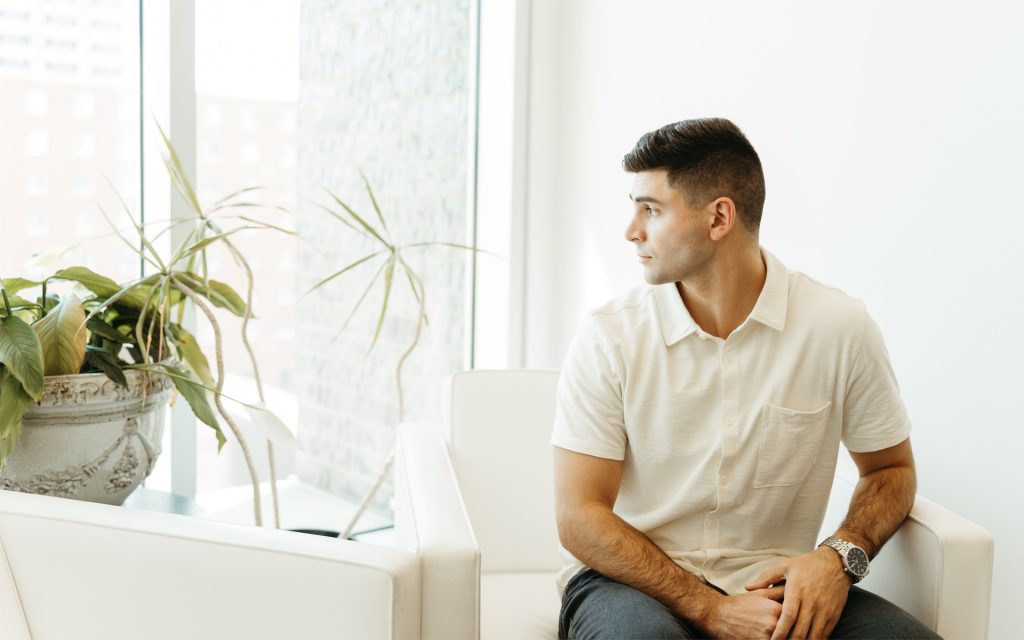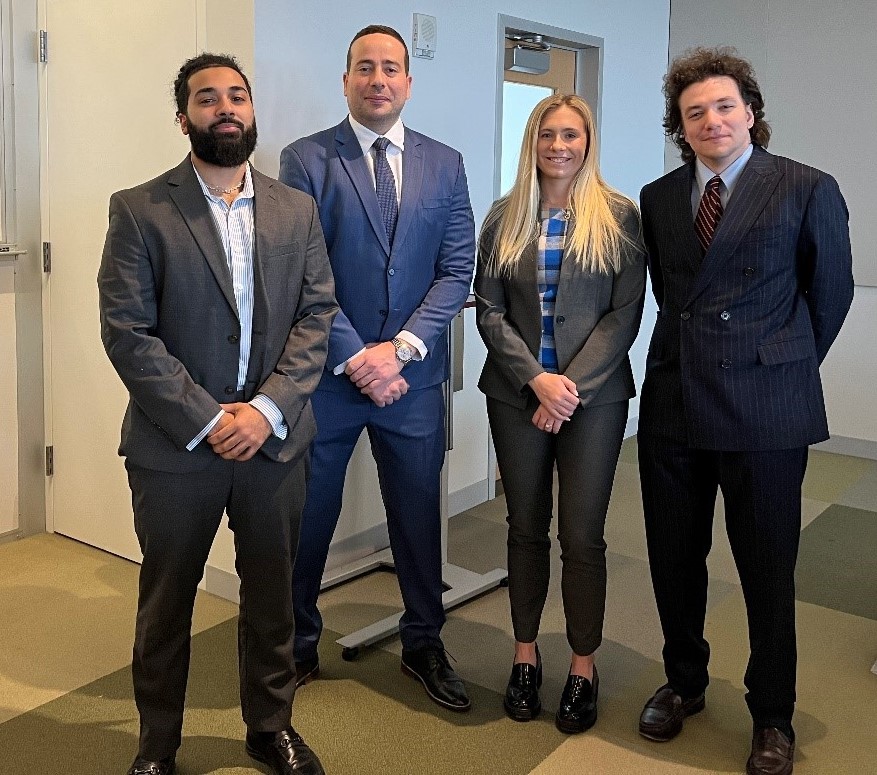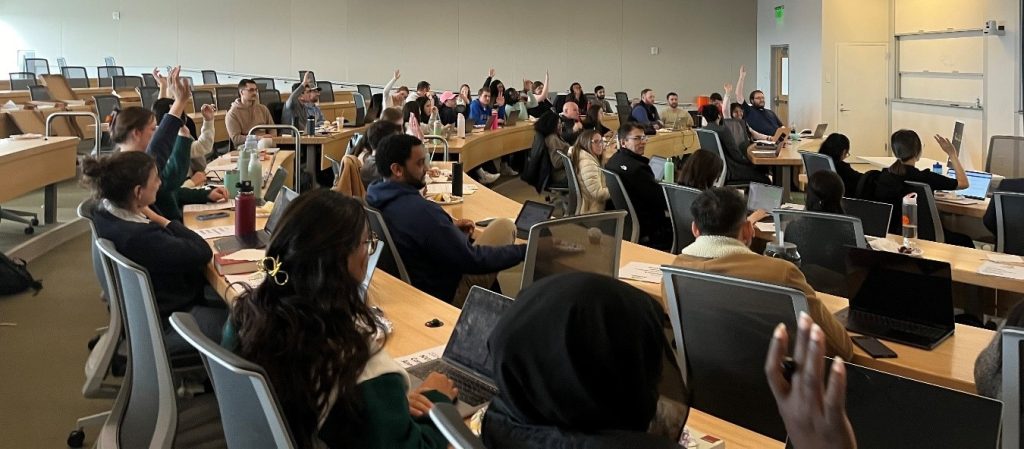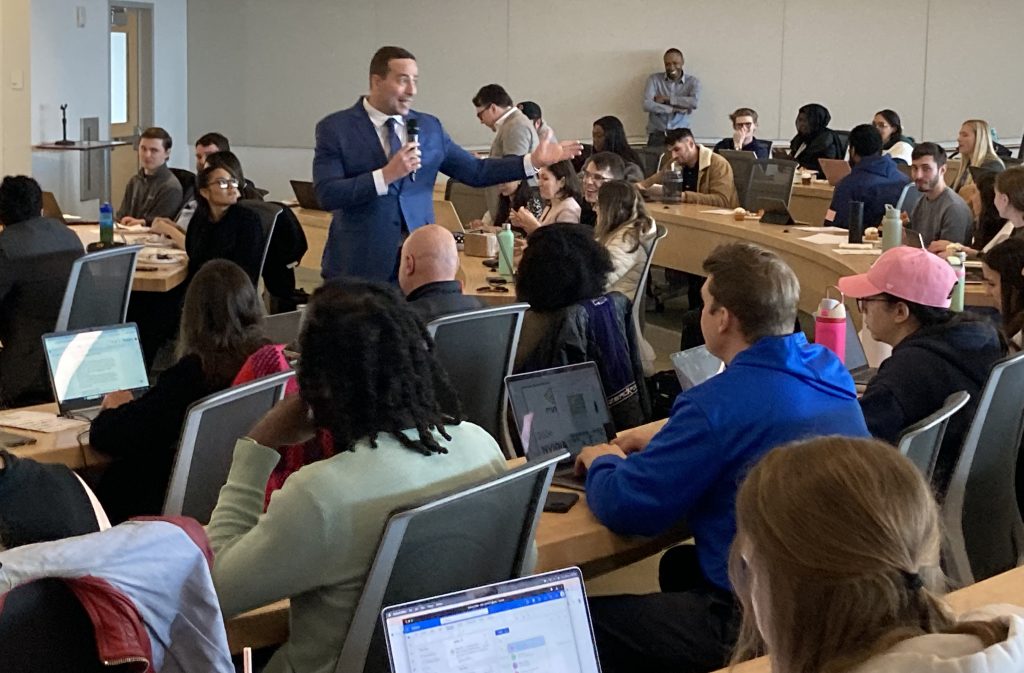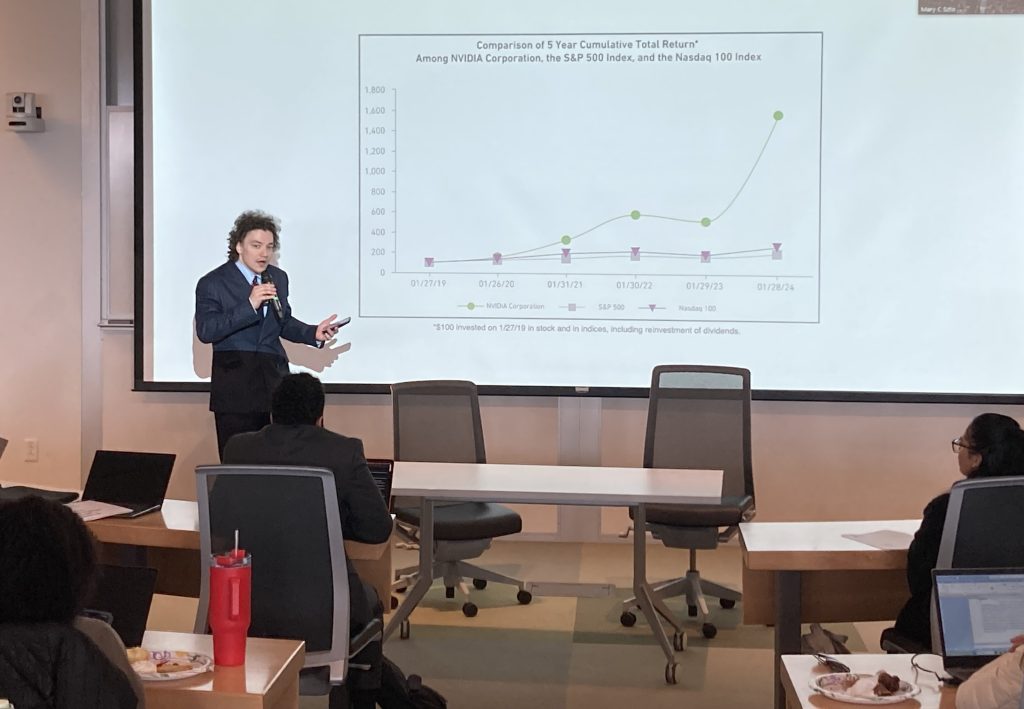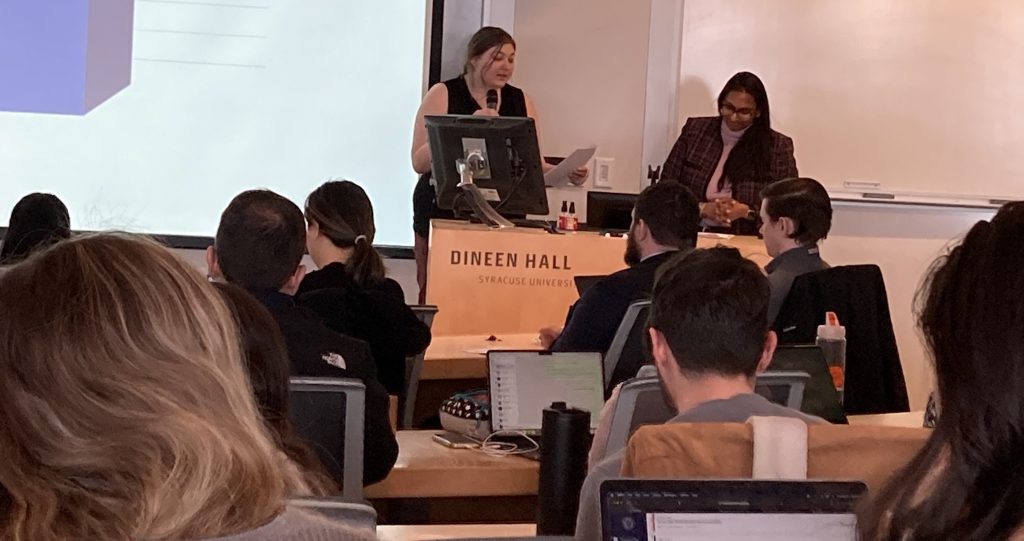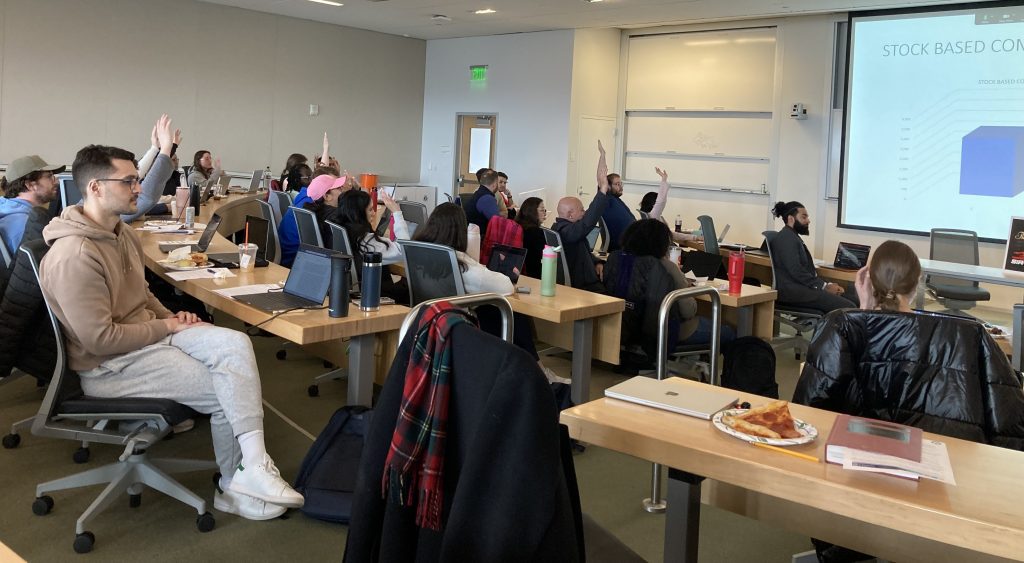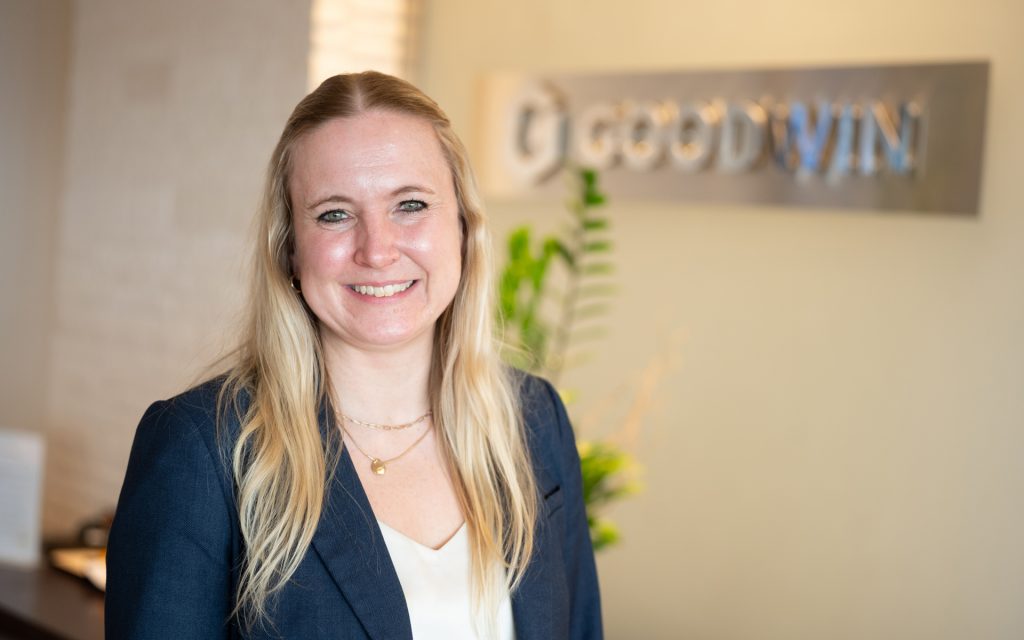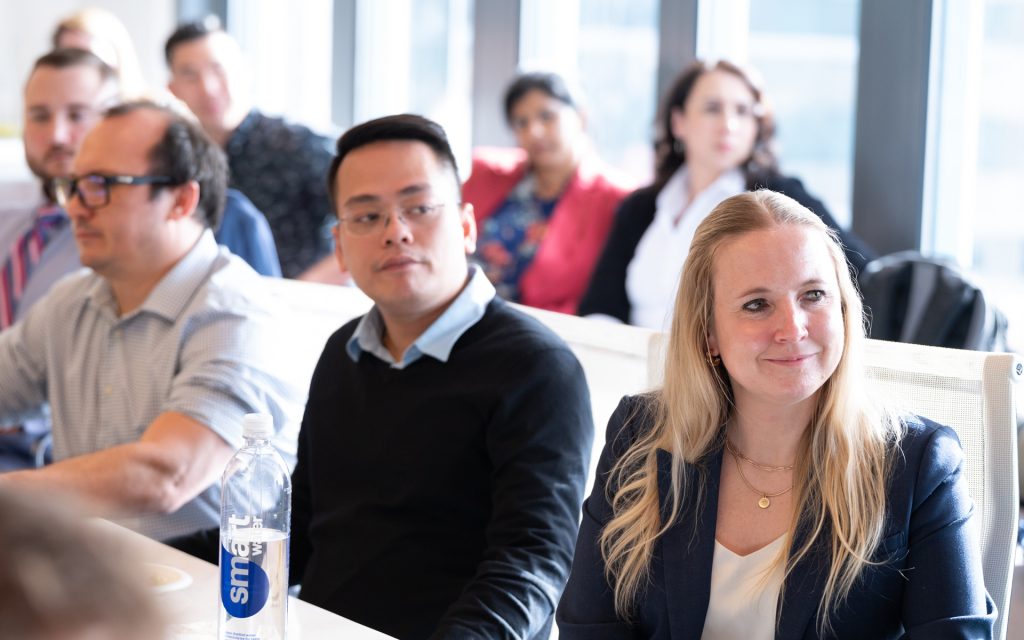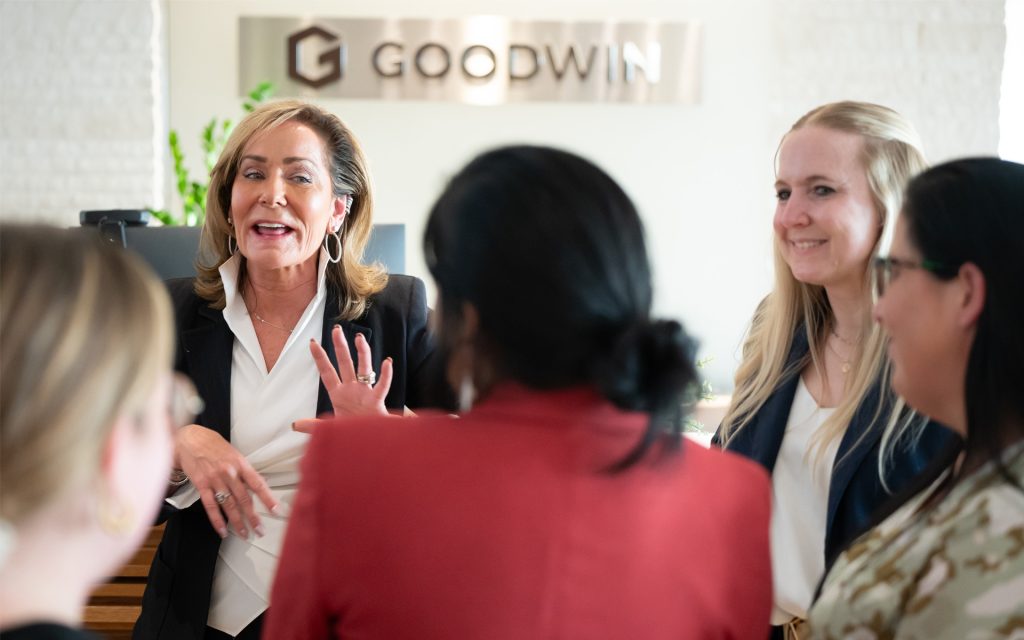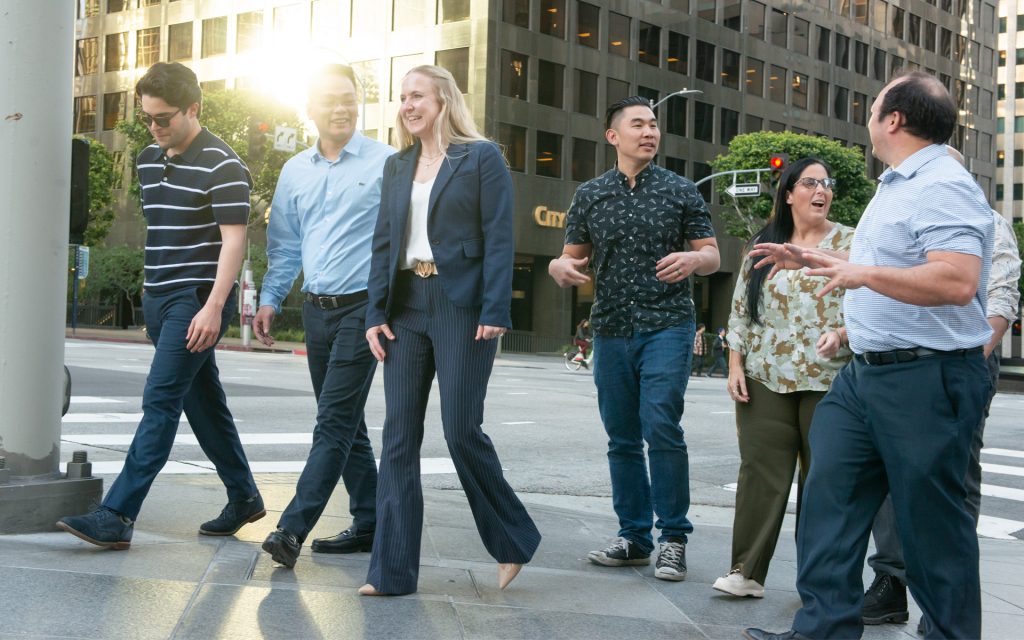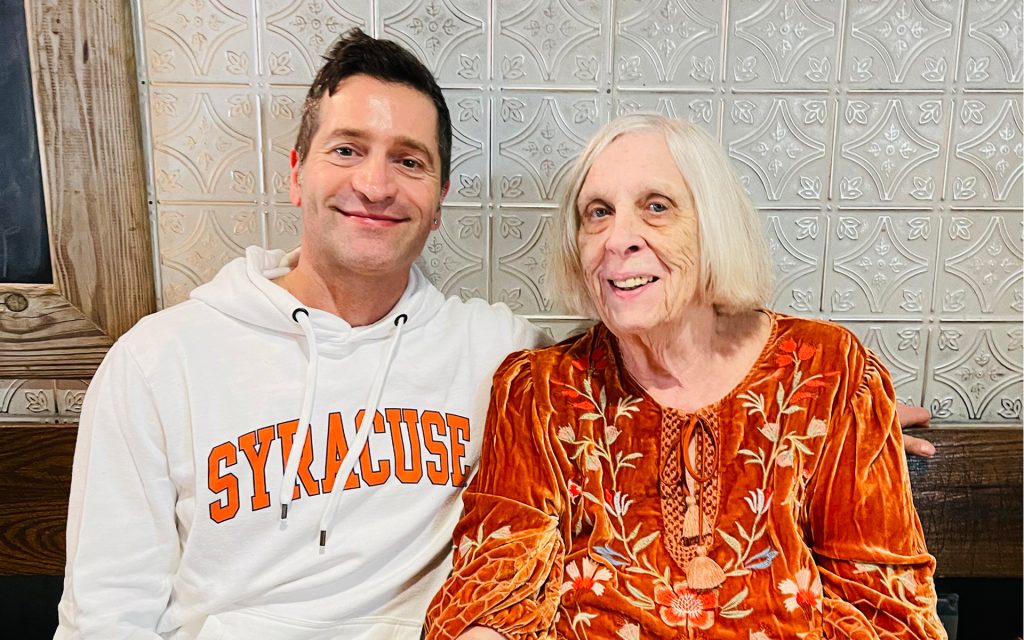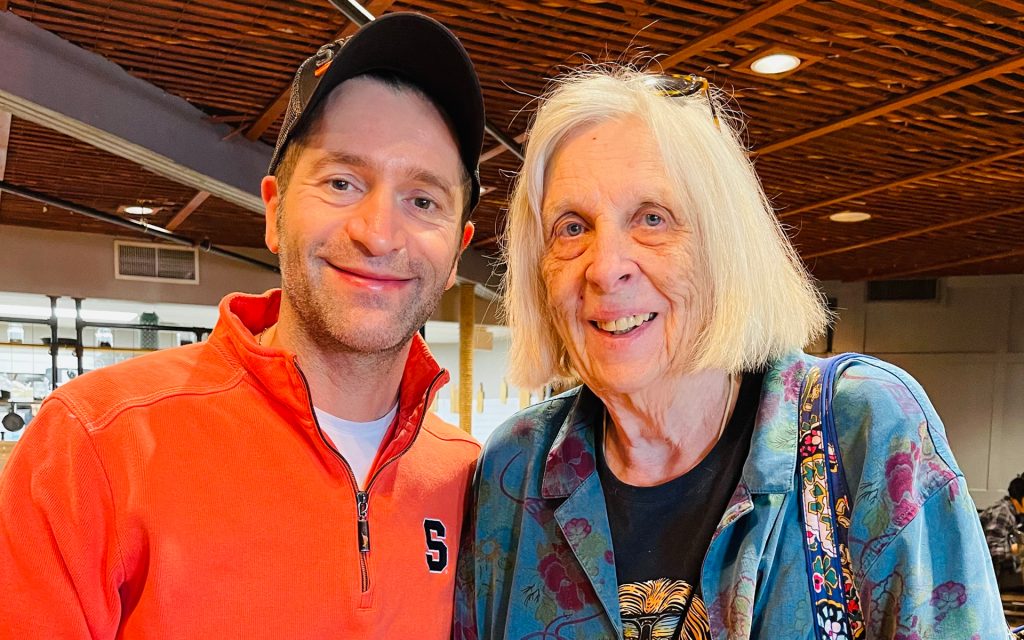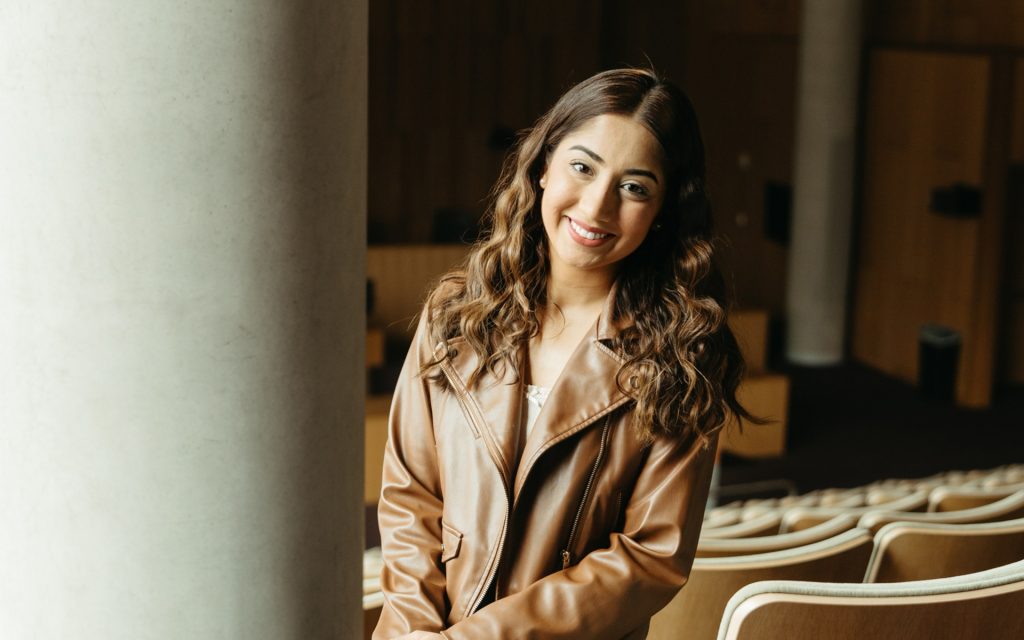
“The flower that blooms in adversity is the most rare and beautiful of all,” says Maheen Asim L’24, quoting her favorite line from Disney’s “Mulan.”
Blooming in the face of adversity, particularly as a woman of color, has been a lesson that Asim has been learning since she was a child who immigrated to the U.S. from Pakistan with her parents. The family had a good life, according to Asim, whose mother was a doctor and father worked in computer science, but her parents wanted to live where there were more opportunities for them and their daughter. They had few family members or friends in the U.S. and moved around a lot, often working menial jobs despite their education back in Pakistan. They were living in a basement in New York City when 9/11 occurred, and Asim remembers being called a “terrorist” by her kindergarten classmates—unsure what the word even meant. Later, when the family moved to Texas, she always felt she “couldn’t fit in with the brown kids but also didn’t fit in with the white kids.”
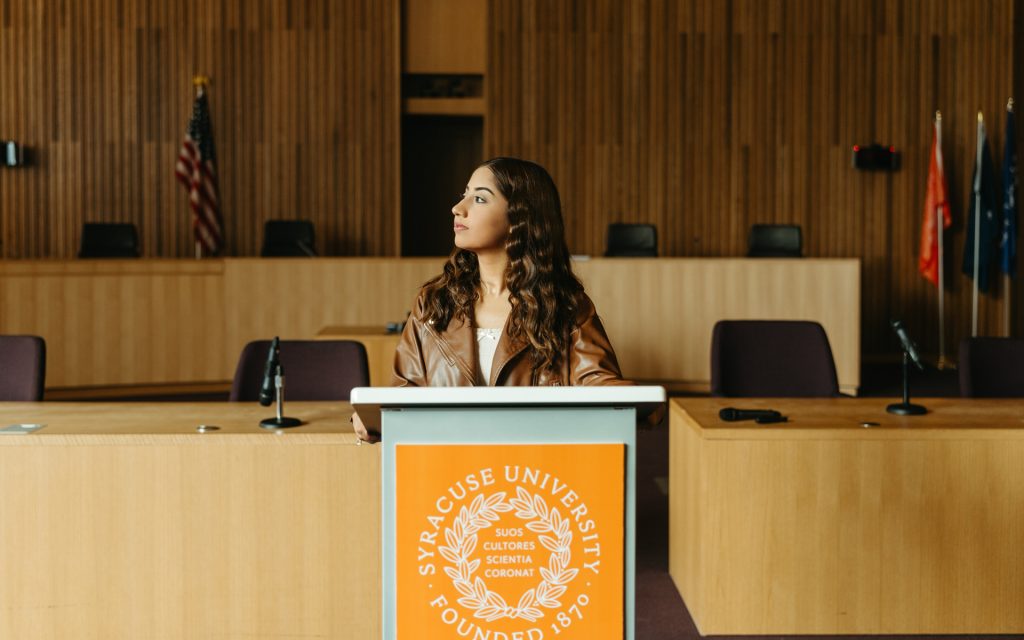
Still, the family persevered. It took her parents 20 years to recoup the education they had earned in Pakistan. Asim also pursued her education, graduating with honors from the University of Texas at Austin with a bachelor’s degree in government. She decided to attend law school to “be a voice for so many people who don’t have one”—like her parents at the time.
Asim was awarded a Dean’s Scholarship to attend Syracuse Law and eager to return to New York State. She took on many activities and leadership roles, including working as a research assistant for several professors, including Teaching Professor Monica Luna, Teaching Professor Andrew Greenberg and Professor of Law Todd Berger; competing on the National Moot Court Gabrielli Family Law Intercollegiate Team; working at the Criminal Law Defense Clinic with Teaching Professor Gary Pieples; and participating in the McKenzie Hughes Appellate Advocacy Competition and the Lionel O. Grossman Trial Competition. Asim also completed a summer associate position with the Nationwide Insurance Trial Division at the Law Office of Brian Rayhill in New York City and the Parsons Corporation in Syracuse. Her other legal experiences were with the 431st District in Dallas, where she clerked for a judge; Berry Appleman and Leiden LLP in Richardson, Texas; and Lexitas Litigation Firm, in Dallas.

Currently, Asim is the president of the Syracuse Animal Legal Defense Fund, the Estate Planning Society and the Criminal Law Society, as well as the appellate director for the Travis H.D. Lewin Advocacy Honor Society, Appellate Division.
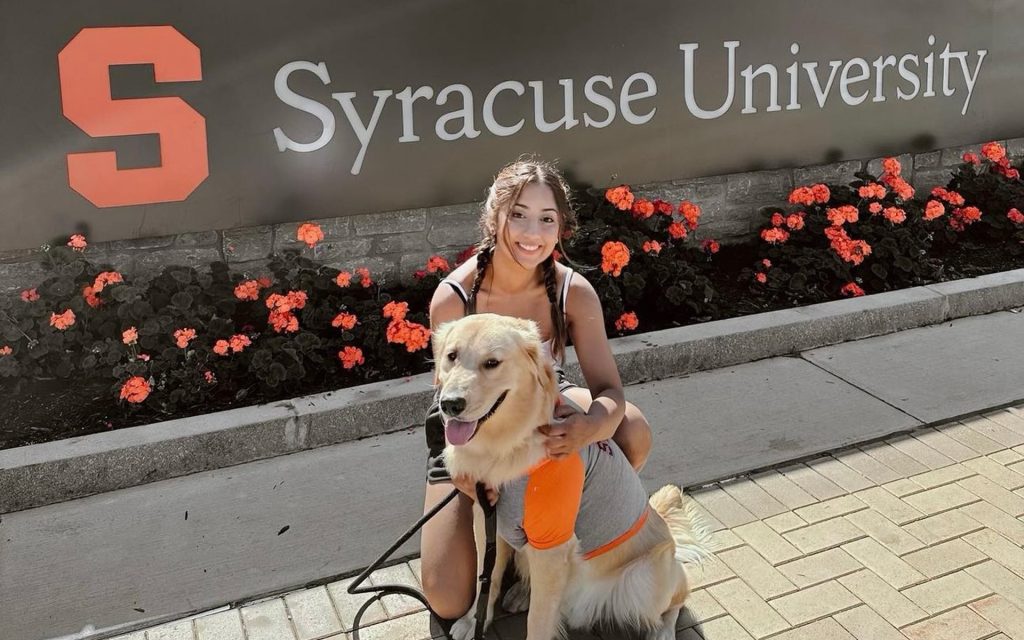
“When you are a leader and involved in many activities you have the opportunity to meet individuals from different backgrounds with different beliefs that help you develop a sense of responsibility that people respect,” Asim says. “It helps you grow as a person and see that being different isn’t a bad thing. My experiences here have taught me not to compare myself to others because the only one you can compare yourself to is you.”
While her mother is her biggest role model, she also looks to people like former First Lady Michelle Obama, the late Supreme Court Justice Ruth Bader Ginsburg, international human rights attorney Amal Clooney, Sen. Bernie Sanders and former Pakistani Prime Minister Imran Khan, all of whom she admires for their representation of women, human rights and their willingness to stand up for others.


She intends to work in criminal defense or prosecution in New York City after law school. She will be the first lawyer in her family, something particularly outstanding in her culture where expectations for women are generally marriage and a family.
Asim has truly bloomed in the face of adversity and is confident that will make her a talented lawyer. “I have had a lovely experience at Syracuse Law. I wish I could tell my 1L self that it’s all going to be OK — just push through, especially when it’s hard,” she says. “I never give up. I just don’t stop! And, that is what will help me continue to move forward always.”
